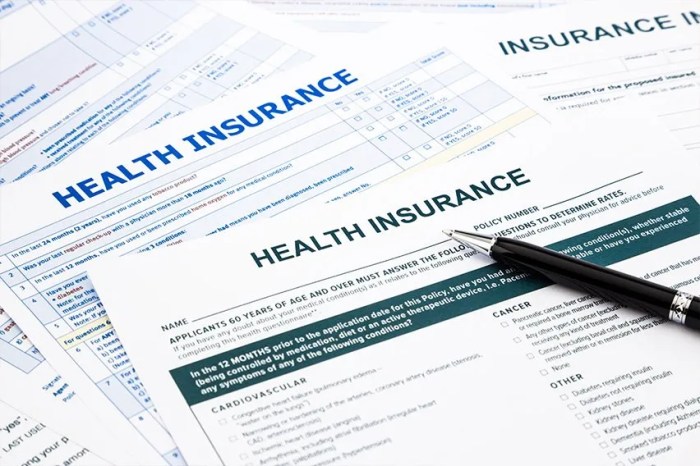Exploring the realm of affordable insurance for freelancers is crucial in today's dynamic work landscape. Understanding the intricacies of insurance options and tailoring them to your specific needs can make a significant difference in your financial security. Let's delve into the strategies and considerations that can help freelancers navigate the realm of insurance with confidence and ease.
Researching Insurance Options

When it comes to getting affordable insurance as a freelancer, researching different insurance providers is crucial in finding the best option that suits your needs and budget.
Key Factors to Consider
- Cost: Compare premiums, deductibles, and out-of-pocket costs to find a plan that is affordable for you.
- Coverage: Look at what services and benefits are included in the plan to ensure it meets your specific needs.
- Network: Check if your preferred healthcare providers are in-network to avoid additional costs.
- Flexibility: Consider how flexible the plan is in terms of adding or removing coverage as your needs change.
Tips for Finding Insurance Tailored to Freelancers
- Consider group plans through professional organizations or freelancers' unions for potential discounts.
- Look for plans that offer health savings accounts (HSAs) or flexible spending accounts (FSAs) to save on taxes.
- Explore specialized insurance options for freelancers, such as liability insurance or disability insurance, depending on your line of work.
Understanding Insurance Needs
As a freelancer, it is crucial to understand the types of insurance that are essential to protect your business and personal assets. Without adequate insurance coverage, freelancers are exposed to various risks that could lead to financial ruin.
Types of Essential Insurance for Freelancers
- Professional Liability Insurance: Protects freelancers from claims of negligence, errors, or omissions in their work.
- General Liability Insurance: Covers third-party injuries or property damage that occur during business operations.
- Health Insurance: Provides coverage for medical expenses and helps freelancers access quality healthcare services.
- Disability Insurance: Offers income protection in case a freelancer is unable to work due to a disability.
- Workers' Compensation Insurance: Covers medical expenses and lost wages for work-related injuries or illnesses.
Risks of Not Having Adequate Insurance Coverage
Without proper insurance, freelancers are vulnerable to financial losses in various scenarios:
-
Not having Professional Liability Insurance could result in a costly lawsuit from a dissatisfied client.
-
Operating without General Liability Insurance may lead to hefty expenses to cover damages or injuries caused to a third party during a work-related incident.
-
Missing Health Insurance could mean high out-of-pocket costs for medical treatments or emergencies.
Examples of Scenarios Where Insurance Can Protect Freelancers
- If a freelance graphic designer accidentally uses copyrighted material in a client's project, Professional Liability Insurance can cover legal fees and damages.
- In the event that a freelancer's equipment is stolen from a coffee shop while working, Business Property Insurance can help replace the stolen items.
- If a freelancer falls ill and is unable to work for an extended period, Disability Insurance can provide a source of income to cover living expenses.
Utilizing Professional Associations
Joining professional associations can be a valuable resource for freelancers looking to access affordable insurance options. These organizations often have partnerships with insurance providers that offer group rates to their members, making coverage more accessible and cost-effective.
Finding Insurance Discounts through Professional Networks
Professional associations typically have negotiated discounts with insurance companies for their members. By becoming a part of these networks, freelancers can take advantage of these group rates and access insurance policies at a lower cost compared to individual plans. This can lead to significant savings on premiums and overall coverage expenses.
- Members of professional associations may have access to exclusive insurance plans tailored to their specific industry or profession.
- Networking within these organizations can also provide valuable insights and recommendations on reputable insurance providers offering competitive rates.
- Some associations offer educational resources on insurance options and best practices for freelancers, helping members make informed decisions about their coverage needs.
Success Stories of Freelancers Benefiting from Group Insurance Plans
Many freelancers have shared success stories of how joining professional associations has helped them secure affordable insurance coverage. By leveraging the group rates offered through these networks, freelancers have been able to protect themselves and their businesses without breaking the bank.
- Freelancers in creative industries, such as graphic design or writing, have found group insurance plans through professional associations that cater specifically to their unique needs and risks.
- Some freelancers have been able to access comprehensive health insurance coverage at a fraction of the cost by joining associations that offer group health plans.
- Collaborating with other freelancers within these networks has also led to cost-sharing opportunities and innovative insurance solutions tailored to the freelance lifestyle.
Exploring Government Programs
Government programs can be a valuable resource for freelancers looking for affordable insurance options. These programs are designed to provide support to individuals who may not have access to employer-sponsored insurance. By exploring government programs, freelancers can find coverage that meets their needs and fits within their budget.
Step-by-Step Guide to Applying for Government-Subsidized Insurance
- Check your eligibility: Before applying for government-subsidized insurance, make sure you meet the criteria set by the program. This typically includes income requirements and citizenship status.
- Research available programs: Look into programs such as Medicaid, CHIP, or the Affordable Care Act marketplace to see which options are available in your state.
- Complete the application: Fill out the necessary forms and provide any required documentation to apply for the insurance program. Be thorough and accurate to ensure your application is processed promptly.
- Review your options: Once you receive information about your coverage options, compare the benefits, costs, and coverage levels to determine which plan best suits your needs.
- Enroll in a plan: After selecting a plan, follow the enrollment instructions to secure your government-subsidized insurance coverage.
Benefits of Private Insurance vs. Government Programs for Freelancers
- Private Insurance: Private insurance plans often offer more flexibility in terms of coverage options and provider networks. Freelancers may have access to a wider range of services and benefits with private insurance, but these plans can be more expensive.
- Government Programs: Government-subsidized insurance programs are typically more affordable for freelancers, especially those with lower incomes. These programs may offer comprehensive coverage at a lower cost, making them a viable option for freelancers looking to save on insurance expenses.
Negotiating Rates and Customizing Plans

When it comes to getting affordable insurance as a freelancer, negotiating rates and customizing plans can make a significant difference in finding the right coverage that fits your budget and needs.
Strategies for Negotiating Rates
- Research and compare rates from different insurance providers to leverage competitive pricing.
- Consider bundling multiple insurance policies (such as health, dental, and vision) to potentially receive a discount.
- Highlight your good health habits or low-risk lifestyle to negotiate lower premiums with insurers.
- Ask about available discounts for freelancers or specific professional associations you may belong to.
Customizing Insurance Plans
- Opt for higher deductibles to lower monthly premiums, especially if you don't anticipate frequent claims.
- Choose coverage options that align with your specific needs and exclude unnecessary add-ons to reduce costs.
- Consider a Health Savings Account (HSA) or Flexible Spending Account (FSA) to save on medical expenses while having a high-deductible health plan.
- Discuss customization options with insurance agents to tailor a plan that suits your budget and lifestyle.
Cost-Effective Insurance Packages for Freelancers
- Freelancers Union offers health insurance options specifically designed for self-employed individuals at competitive rates.
- Short-term health insurance plans can be a budget-friendly choice for freelancers who need temporary coverage during gaps in employment.
- Consider joining a healthcare sharing ministry for a community-based approach to affordable healthcare coverage.
- Explore peer-to-peer insurance platforms that allow freelancers to pool resources and share risks within a like-minded community.
Ultimate Conclusion
In conclusion, securing affordable insurance as a freelancer requires a blend of research, understanding your needs, leveraging professional networks, exploring government programs, and smart negotiation tactics. By taking proactive steps and customizing your insurance plans, you can safeguard your freelance career and financial well-being effectively.
Essential FAQs
What factors should I consider when comparing insurance plans?
When comparing insurance plans, it's essential to look at coverage limits, deductibles, premiums, network providers, and any exclusions that might apply to your freelance work.
How can professional associations help freelancers access affordable insurance?
Professional associations often have group insurance plans that offer discounted rates to members, leveraging the collective bargaining power of freelancers to negotiate better deals with insurance providers.
What are some strategies for negotiating insurance rates?
Some negotiation tactics include bundling multiple insurance policies, asking for discounts based on your freelancing track record, and comparing quotes from different providers to leverage competitive pricing.



